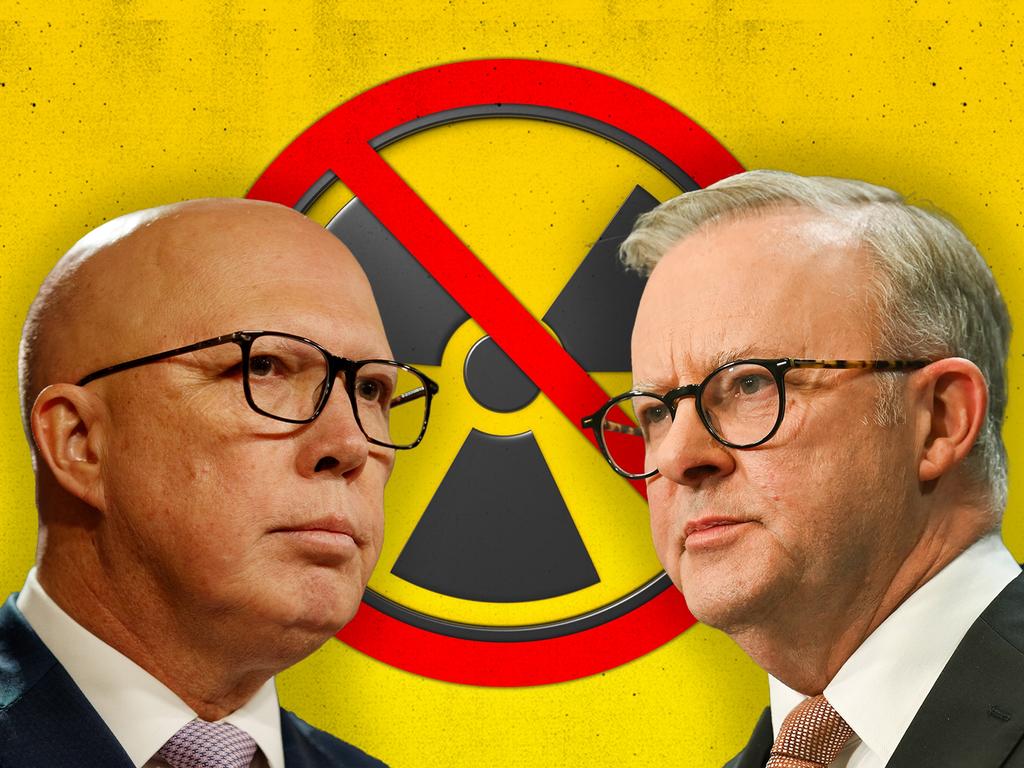Senate crossbench leans to ending nuclear power ban
Many of the crossbench senators are at least open to removal of the federal ban on nuclear power reactors, in a boost for Peter Dutton’s new energy policy.

Much of the Senate crossbench is at least open to considering removal of the federal ban on nuclear power, in a boost for Peter Dutton’s energy policy.
With Labor and the Greens opposed to removing the ban, introduced during Senate horse-trading in 1998, a Coalition government if elected would likely need crossbench support.
Tasmanian crossbench senators Tammy Tyrrell and Jacqui Lambie on Thursday indicated they were willing to consider removing the legislated prohibition.
Even ACT independent David Pocock, who is critical of the Coalition’s nuclear policy, did not rule out supporting the ban’s removal, saying he would consult at the time.
Much of the crossbench, meanwhile, is openly enthusiastic about nuclear energy and removing the ban.
This includes Pauline Hanson and her One Nation colleague Malcolm Roberts, the United Australia Party’s Ralph Babet and independent David Van. Senators Roberts, Lambie and Van are up for re-election at the next election.
“I support nuclear – it’s one step cheaper than the Bowen, Albanese wind and solar pipe dream – and we should absolutely remove the ban,” Senator Roberts said, referring to Energy Minister Chris Bowen and Anthony Albanese.
Only one Senate crossbencher, independent Lidia Thorpe, said she would definitely not support removing the ban.“I can’t believe we’re taking this nonsense policy seriously,” Senator Thorpe said. “It’s like an episode of the Simpsons.
“My (Indigenous) people have known for thousands of years that uranium is poison and needs to stay in the ground. Nuclear doesn’t make sense economically, technologically or environmentally.”
Senator Tyrrell said she was willing to consider dumping the ban, but remained unconvinced about taxpayer investment in nuclear power.
“I’m keeping an open mind on lifting the ban on nuclear power in Australia – if we’re serious about reducing emissions, I don’t think we should take anything off the table,” Senator Tyrrell said.
“But lifting the ban isn’t the same as throwing taxpayer dollars at it. The private sector and the science says nuclear doesn’t stack up economically. I’m not convinced federal funds should go towards it.”
Senator Lambie was yet to form a view on the Coalition’s policy and removing the ban.
“Nuclear should be in the mix but we haven’t done any R&D on this,” said Senator Lambie’s spokeswoman. “So Jacqui would look into all of it but doesn’t have an opinion on the legislation at this point.”
ACT independent Senator David Pocock attacked the Coalition’s nuclear policy as “reckless and unrealistic” but did not rule out supporting repeal of the ban.
“If re-elected, I would treat a bill to overturn the current ban on nuclear power the same as I do every other piece of legislation - I would consult with the community I represent and with experts,” Senator Pocock said.
“While I’m not ideologically opposed to nuclear energy, based on the feedback I have received to date, the costs and timeline and the urgent need to decarbonise our economy now, nuclear just doesn’t make sense for Australia.
“The Coalition proposing a nuclear pipedream in 2024, given the urgent need for climate action and Australians facing a cost of living crisis, is reckless and unrealistic. The proposal just doesn’t stack up.”
Australia is one of just a few countries to ban nuclear energy. The prohibition was introduced via a Greens amendment in the Senate in 10 December 1998, with little debate.
The then-Howard Coalition government needed Senate support to build a new nuclear research reactor at Lucas Heights in Sydney and accepted the amendment to secure it.







To join the conversation, please log in. Don't have an account? Register
Join the conversation, you are commenting as Logout